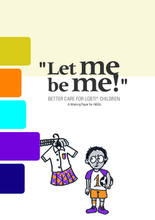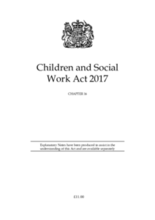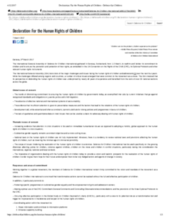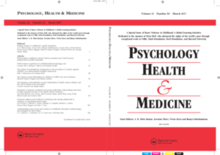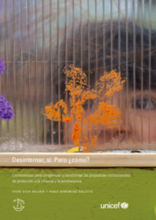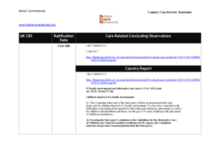Displaying 801 - 810 of 1779
University at Albany, New York State Kinship Navigator, and the Child Welfare League of America (CWLA) formed a collaborative partnership to plan and host a Kinship Care Summit in Albany, New York in September 2016. The Summit included presentations by authors of kinship manuscripts that were accepted for this Special Issue on Kinship Care of the Child Welfare Journal.
This two-part special issue of the Child Welfare Journal focuses on children in kinship care—those who are being raised by grandparents, aunts and uncles, older siblings, and non-related extended family members—to bring attention to this less visible area of public child welfare, featuring policy-based and empirical research on kinship families.
Dreilinden produced this working paper to improve practice in the area of *LGBTI children in care. This paper has texts in a variety of formats from around the world and contains three sections that cover research and tools, interviews, and practice examples.
This Act was enacted by the government of the United Kingdom "to make provision about looked after children; to make other provision in relation to the welfare of children; and to make provision about the regulation of social workers."
This report presents the findings from a study that aimed to explore the application in practice of the ‘necessity principle’ from the Guidelines on Alternative Care for Children (UN, 2009) by using three quantitative and three qualitative indicators that provide information about whether children and families have received support to the fullest extent possible before a child ends up outside of parental care arrangements in formal or informal care, or living alone.
This Declaration from the International General Assembly of Defense for Children International (DCI) specifies global, thematic and issues of concern.
Using inter-agency action research in Sierra Leone, this chapter provides a case study on how a highly collaborative approach can enable child protection research to achieve a significant national impact.
This editorial explores the experience and impact of childhood violence around the world and calls for a coordinated and multi-sectoral response to prevent violence, recognizing the need to identify and address the root causes of family separation and institutionalization.
En esta publicación, a partir de la experiencia de trabajo y la reflexión sobre su propia práctica, La Barca ordena, sistematiza y pone a disposición de todos los actores del sistema de protección a la infancia de Uruguay los principales aprendizajes de la tarea realizada en los últimos años.
This country care review includes the care-related Concluding Observations adopted by the Committee on the Rights of the Child.

